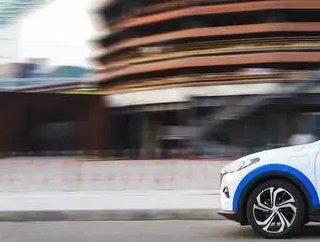Baidu demonstrates automated vehicles and 5G remote driving

Chinese technology company Baidu has demonstrated what it calls “Fully Automated Driving” with its Apollo platform and a Weltmeister EV.
Baidu said the system is now capable of driving without a safety driver inside the vehicle, making wider deployment a possibility.
The demonstration took place at Baidu World 2020, an annual technology conference operated by the company. Baidu’s solution involves adding the system to pre-installed and mass-produced vehicles.
The Apollo platform has now completed over six million kilometres of on-road testing, experiencing zero accidents while carrying over 100,000 passengers across 27 cities.
The platform also makes use of 5G communications technology to enable remote driving - replacing the safety driver typically ready to assume control of autonomous vehicles in cases of emergency. Baidu said its remote operators have all completed over 1,000 hours of cloud-based driving training, and are ready to assume control in an emergency.
The company stated its autonomous valet parking technology was ranked level 4 on the Society of Automotive Engineers (SAE) Levels of Driving Automation Standard, with the prized level 5 meaning a vehicle able to operate in all conditions without human interaction.
Baidu predicted that the autonomous driving industry would be fully commercialised in 2025.
China has emerged as a leader in autonomous vehicle development, alongside the United States. One of its premier competitors is ride-hailing firm DiDi, which previously bought out Uber’s Chinese business, and is currently testing its solutions on public roads in cities such as Shanghai.
The company has said it plans to have more than one million robotaxis (self-driving vehicles in public use) by 2030, operating in areas where human ride-hailing drivers are less available. Elon Musk’s Tesla had targeted a million-strong robotaxi network this year, by pushing a software update to its existing vehicles, but that now seems unlikely.
(Image: Baidu)






